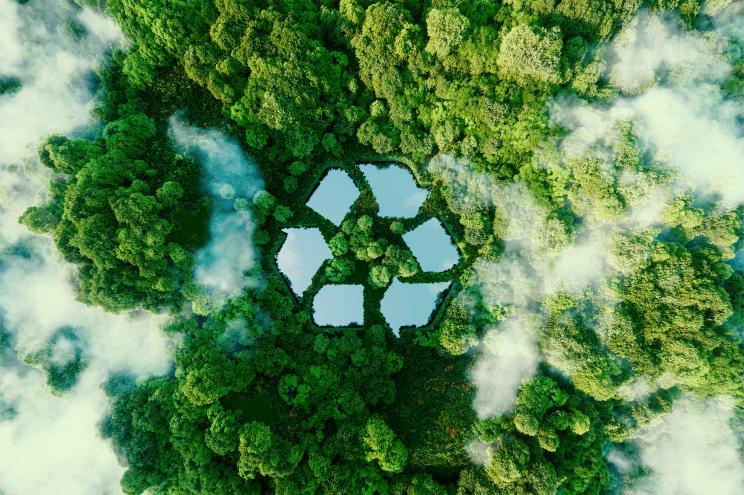Conversations around the environment can become politically divisive, yet a growing number of consumers continue to implement more sustainable habits in their own lifestyles.
Emerging research shows that roughly 72% of greenhouse gas emissions are directly associated with household consumption, that is how people choose to live, move, eat, and shop. While consumption has jumped exponentially in some parts of the developed world, people in other locations are still struggling to meet basic needs.
In addition to placing pressure on their elected officials and governments, shoppers are digging deeper into the products they choose to buy and use. Recent trends show that more families are concerned about environmental issues and taking it upon themselves to act. A GreenPrint Survey found that consumers want to buy eco-friendly products but don’t always know how to identify them.
The New York Post spoke with Garrette Clark, Sustainable Lifestyle Expert at the United Nations Environmental Program, to understand the ins-and-outs of sustainable consumption.
“The challenge is clear!” said Clark, “Our future depends on how we choose to live, work and play as global consumers. How we run our homes, what food we eat, how we get around, how we relax, what we buy and how we care for our planet.”
When it comes to evaluating the impact a household has on the environment, Clark notes the importance of checking labels, and evaluating whether certain environmentally-friendly certifications are reliable.
“Ecolabels provide sustainability information and in general are based on a lifecycle approach that evaluates a product through its lifespan and are third party certified,” Clark told the Post. “There are also product green claims and self-declarations of the sustainability characteristics.”
Clark emphasizes the importance of doing research, considering the sources, and taking various eco-friendly declarations with a grain of salt. “Keep in mind the best consumer is an informed one!” warned Clark.
The sustainable development expert also encourages people to tap into their creative side when it comes to sustainable living. He suggests families consider sharing clothes, buying vintage, opting for reusable cups, and choosing eco-friendly containers to reduce plastic use.
Most importantly, there is no “one size fits all” approach. “What people need and aspire to, how they live their lives, varies across a city much less the planet, so sustainable living varies as well,” said Clark.
Considering the recommendations from Clark and guidance from UNEP, the New York Post has handpicked some of our favorite items to lead a more sustainable lifestyle. Check out our picks below and gather more inspiration from our favorite eco-friendly clothing brands and gift ideas.
Food
1. Misfit Market
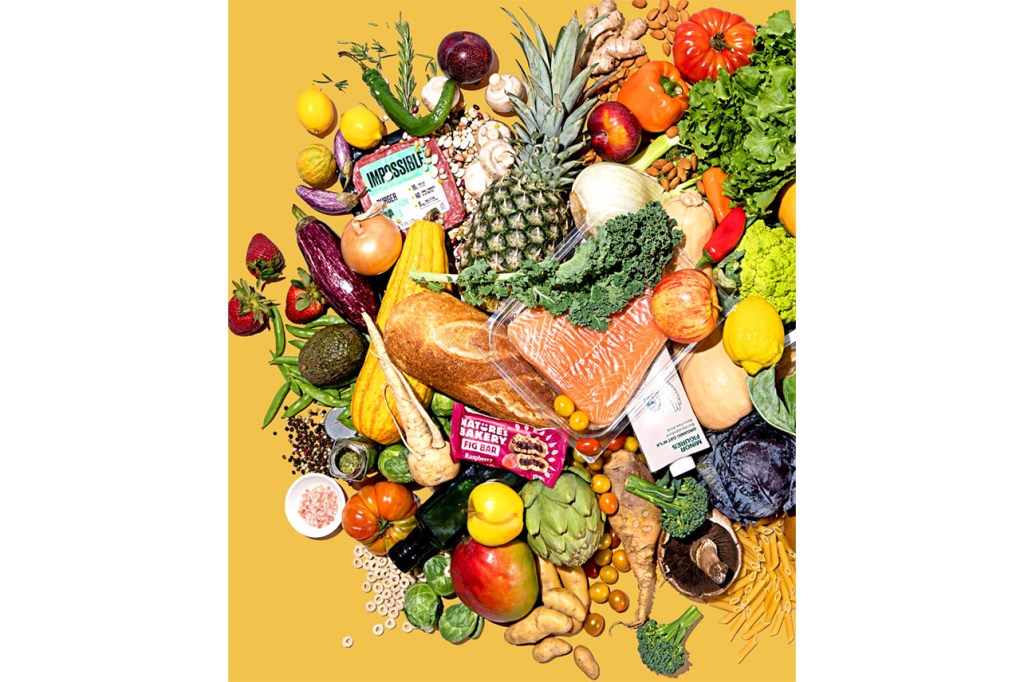
In the United States, food waste is estimated to be between 30 and 40 percent of the food supply.
Misfit Market selects high-quality food that grocery stores would rather let go to waste and finds a new home for it. Shoppers have access to everything from non-GMO fresh fruits and vegetables to organic proteins, and other popular snacks. Shop from their online store and have your groceries delivered directly to your door.
2. Click and Grow Smart Garden, $80, original price: $100
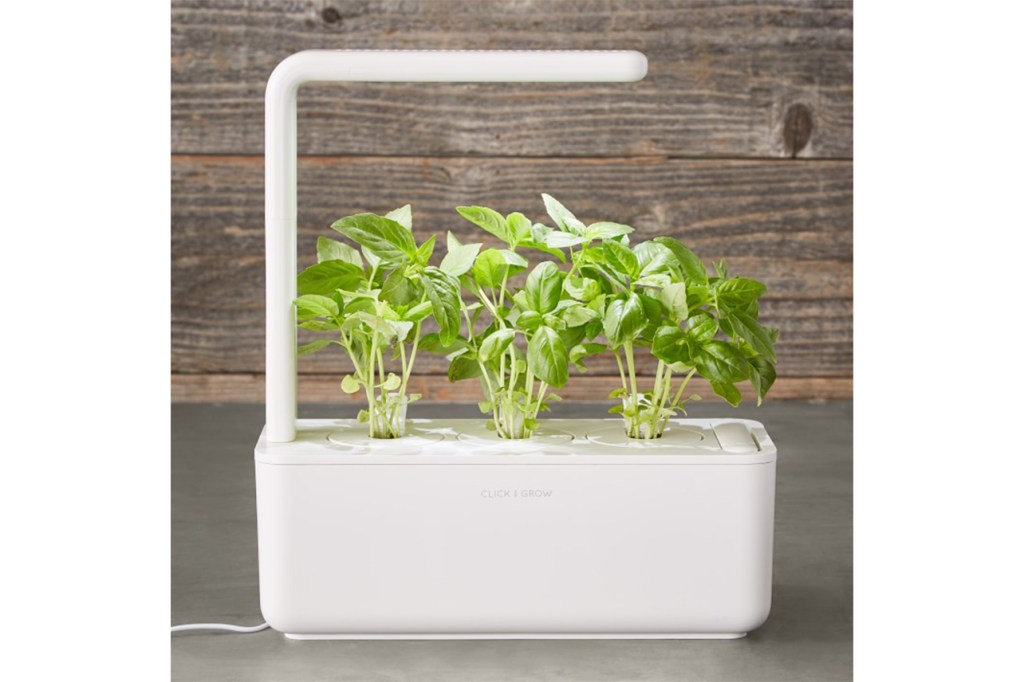
More than 90 percent of samples of strawberries, apples, cherries, spinach, nectarines and grapes tested positive for residues of two or more pesticides
Not everyone has the resources to grow all their own fruits and vegetables, however this super-sized smart garden is a great starting point. The NASA-inspired Smart Soil creates an optimal environment for your plants, with no pesticides, fungicides or hormones. Just place the capsules, add water and plug in the machine.
3. Plastic-Free Glass Food Storage Containers, $40
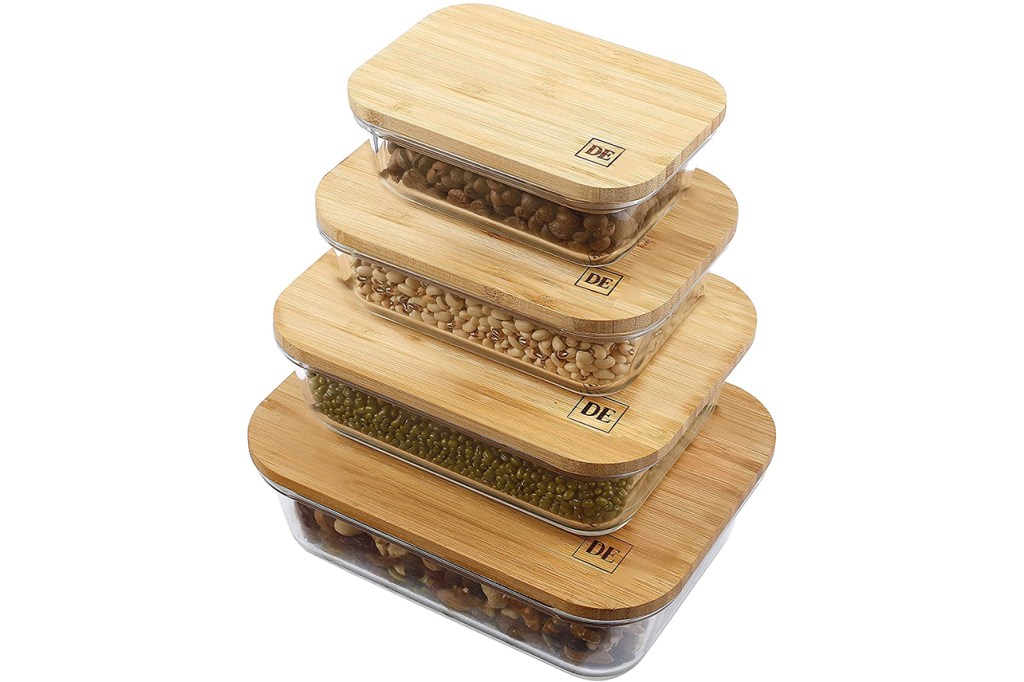
Chlorinated plastic can release harmful chemicals into the surrounding environment and even make it into your food.
These glass storage containers are made from high-quality lead-free borosilicate glass, and are plastic-free, BPA-free, phthalate-free and non-toxic. If you’re ready to reduce your plastic use, moving towards glass is certainly a healthier option. Plus, these are microwave, dishwasher, and freezer safe.
4. Hydroflask Water Bottle, $40

481.6 billion plastic bottles are used worldwide in a single year. The recommendation to drink 8 glasses of water a day equals about $.49 per year; that same amount of bottled water is about $1,400.
With water bottles contributing so much to plastic waste, investing in a reusable water bottle and cups is a great way to help reduce environmental harm while saving money. Hydroflask water bottles are made out of stainless steel and are BPA-free and phthalate-free, making them a great option for conscious consumers.
Beauty
1. Mineral Face Sunscreen Stick SPF 30, $14
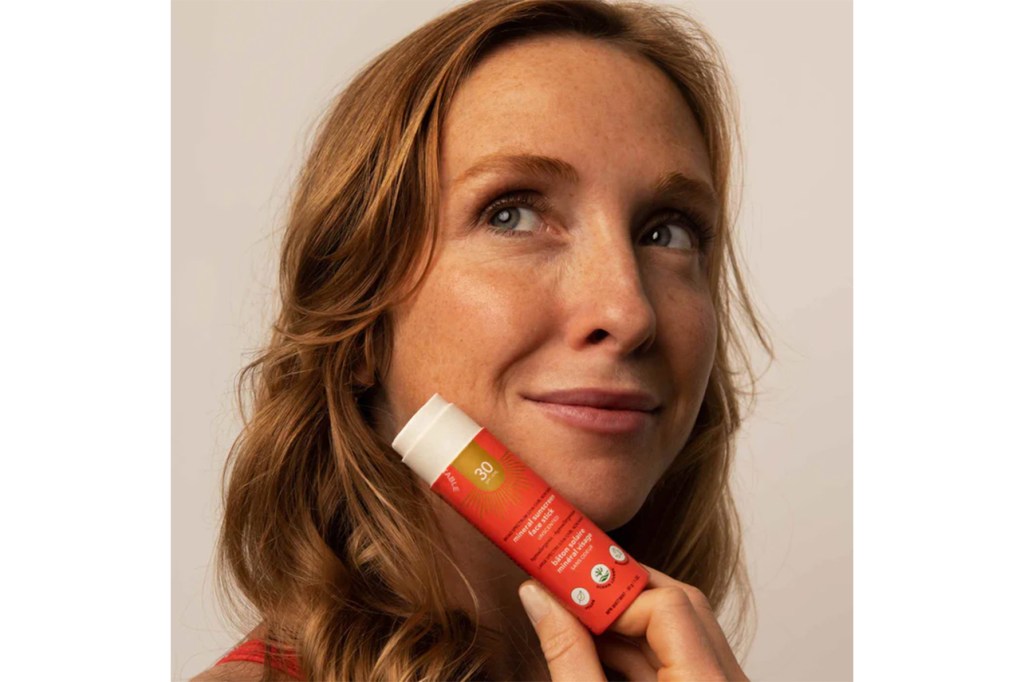
According to the National Ocean Service, research has shown that some of the chemicals found in sunscreen and other personal health products can harm coral reefs and marine life.
Attitude Sunscreens are made from natural ingredients and do not contain eco-toxic chemicals filters like octinoxate, which makes it a reef-friendly skincare option. In addition to being vegan and cruelty free, their formula is also hypoallergenic, dermatologically tested and unscented.
2. Tarte Cosmetics
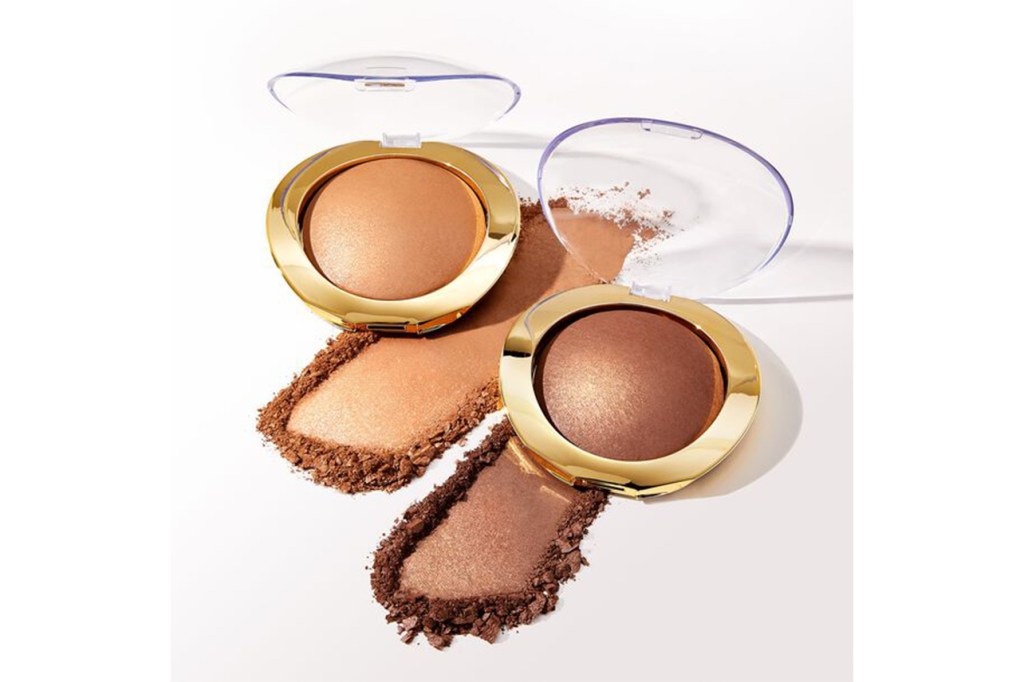
Independent research has found that of the 50 largest cosmetics companies ranked by market value, 88% funded animal testing in 2021.
Luckily, there are many cruelty-free makeup brands that still have all the primers, glosses, brushes, and blenders you can think of. Among them is Tarte Cosmetics, a vegan makeup brand that doesn’t test finished products or ingredients on animals. The company also refused to sell its products where animal testing is required by law.
3. Face Halo Reusable Makeup Wipes, $22
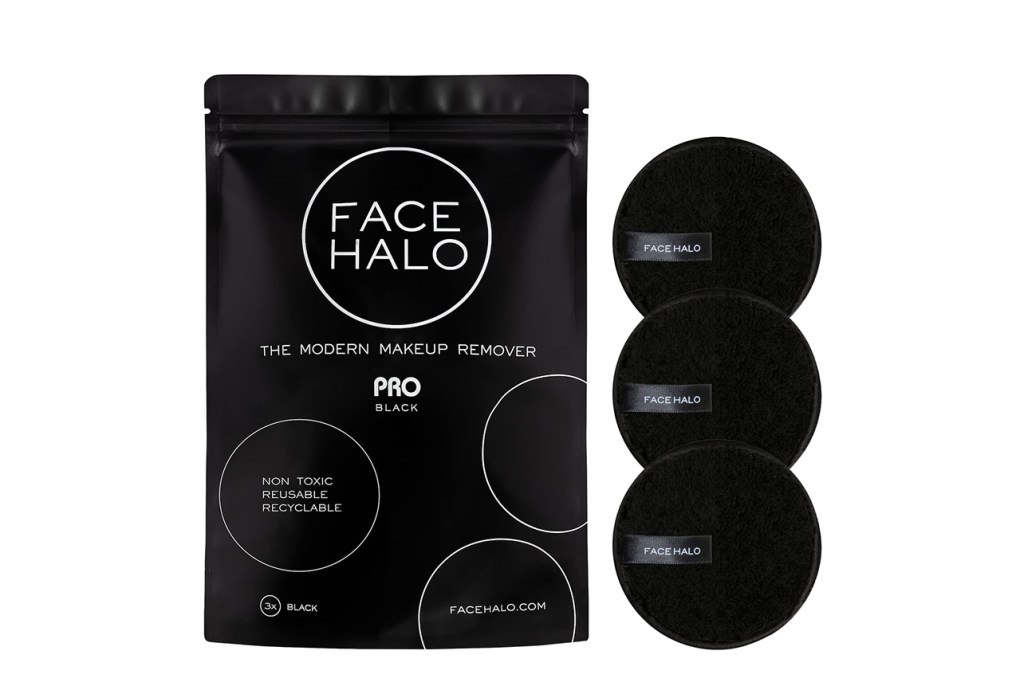
Most makeup wipes and disposable cotton pads are not biodegradable, and can take up to 100 years to break down in a landfill.
HaloTech microfiber makeup remover cloth round reusable wipes are PETA approved and non-toxic. Add these to your skincare routine and you can save money and reduce single-use waste at the same time. Simply rinse used facial pads in the laundry machine.
4. Waterless Shampoo Bars, $18
`
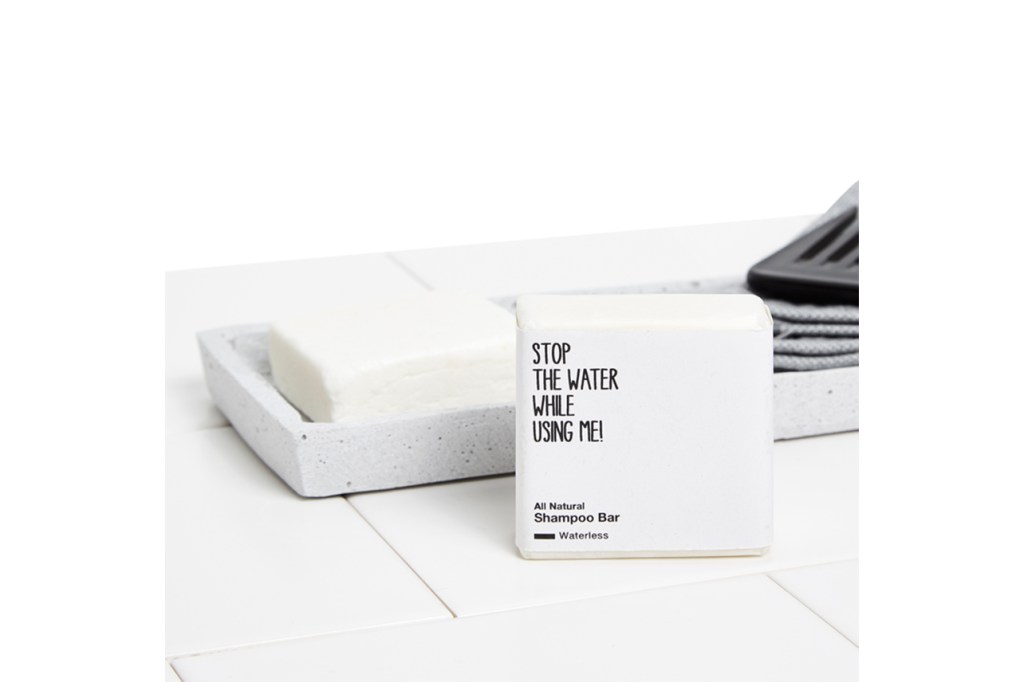
According to the Water Research Foundation in 2016, the average shower uses roughly 17 gallons of water. On top of that, hair shampoo and conditioner products also contain unnecessary amounts of water.
Sugru offers waterless hair products that are made from 100% natural ingredients, nurturing your hair and scalp without synthetic additives, fragrances, or silicones. Take a hint from Sugru and keep your showers shorter and opt for water-free products to conserve earth’s natural gift.
Clothing
1. Mercari
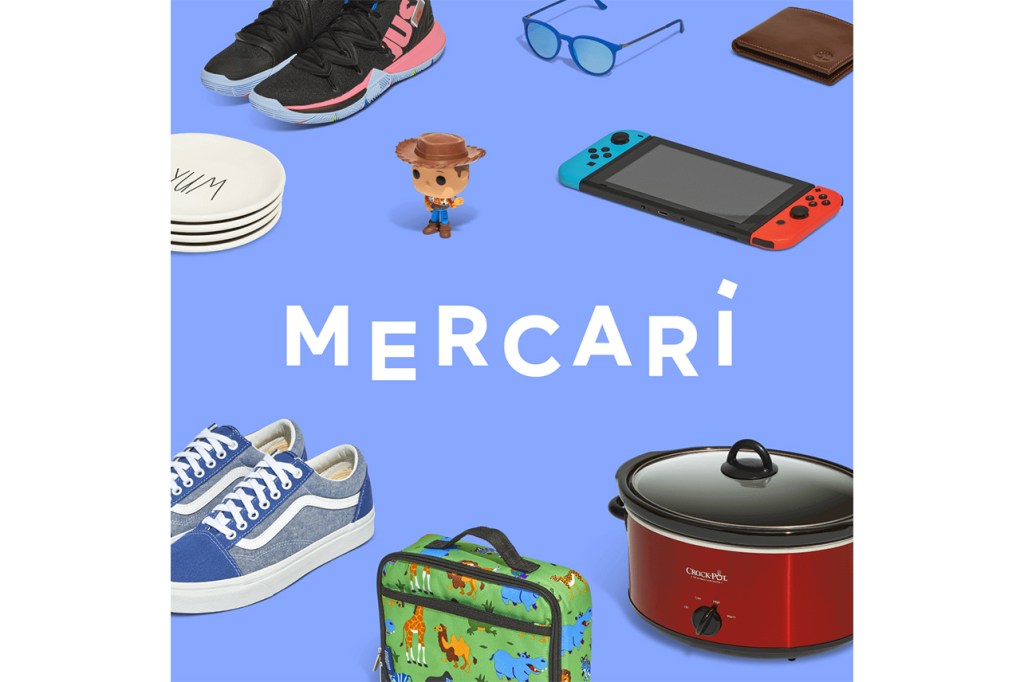
With fast fashion on the rise, buying secondhand is a great way to save money and resources.
Online platforms and apps like Mercari allow users to buy and sell almost anything, with a heavy focus on used clothing. Whether you’re looking to reinvent your style or clean out your closet, the platform is a wonderful option for sustainable shopping. Plus, your purchases will come straight to your front door so you can skip the changing room lines.
2. Cotopaxi
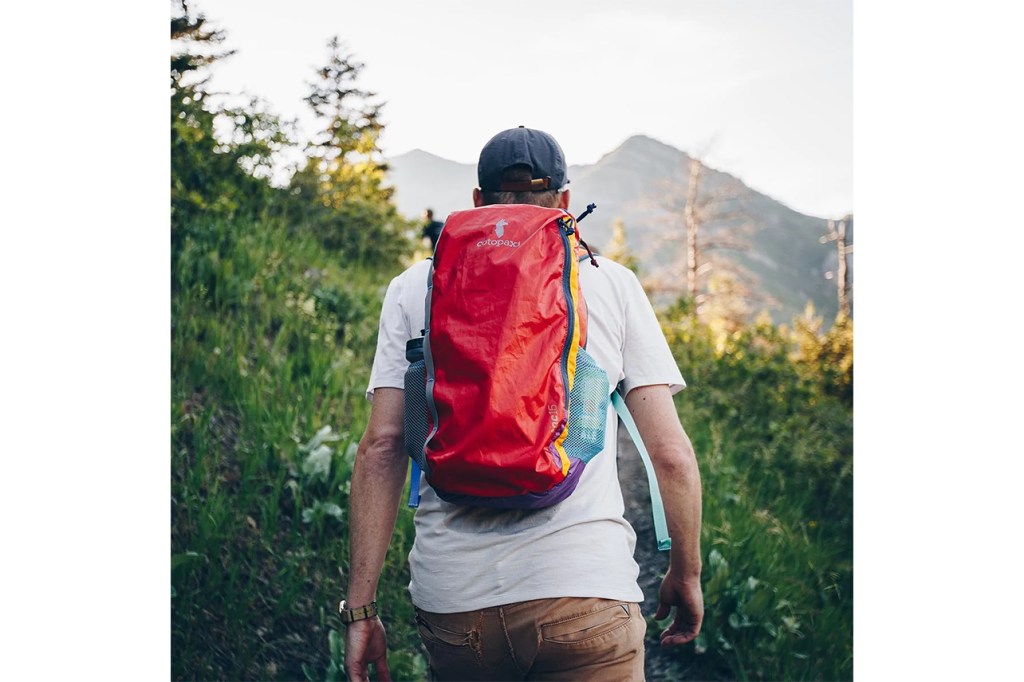
Over the last few decades, more fashion brands are pledging to give back to communities who have been historically disenfranchised.
With a slogan of “gear for good,” Cotopaxi has dedicated their resources to developing durable gear in the most ethical way possible, while also using their influence to uplift communities. Their collections are made from 100 percent repurposed fabric and 1 percent of their revenue is distributed to humanitarian organizations.
3. Tentree
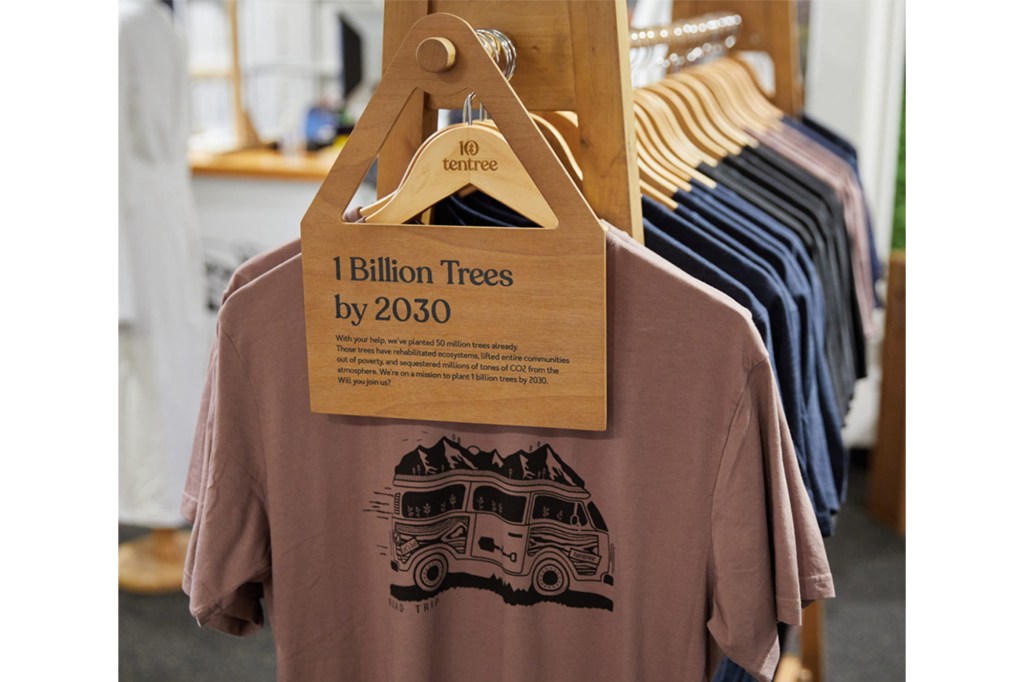
Clothing comes at a cost. Textile dyeing is the most polluting and energy-intensive process involved in production. Per the Environmental Protection Agency, landfills received 11.3 million tons of municipal solid waste textiles in 2018.
For every product purchased at Tentree, the company plants ten trees as part of their mission to plant 1 billion by 2030. The B-corp has been recognized for delivering minimum footprint and maximum comfort. Shop from their selections of T-shirts, cardigans, dresses, and more made from sustainable materials such as hemp and Tencel.
4. Gunas
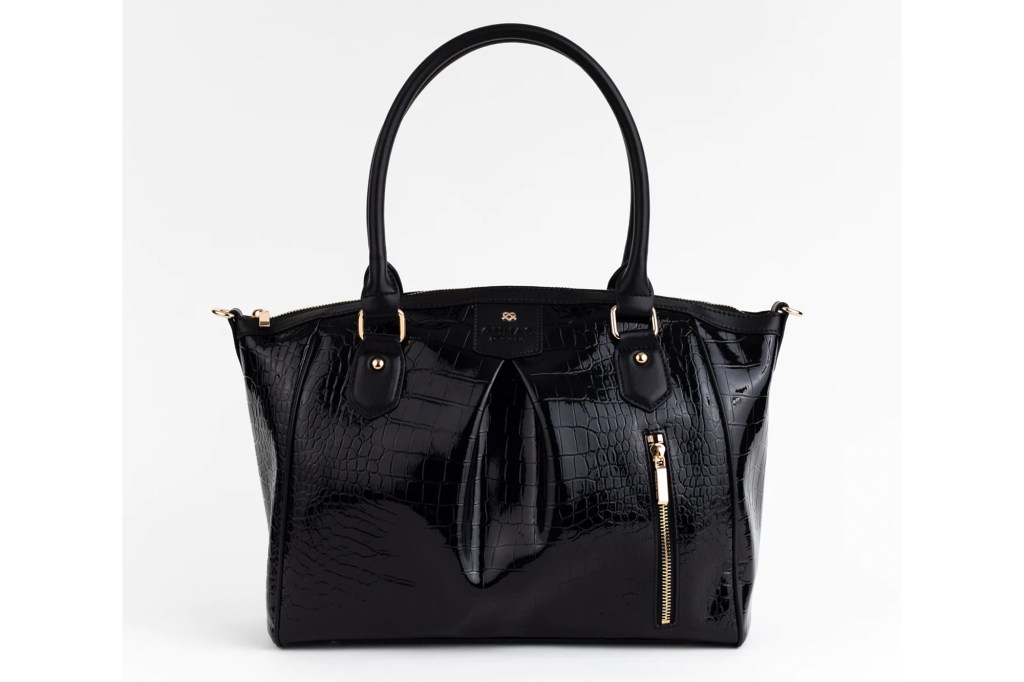
For centuries, luxury fashion has been intertwined with the leather industry. In addition to animal cruelty charges, turning skin into leather requires massive amounts of energy and dangerous chemicals.
Gunas opts for something different. The vegan leather brand works with a group of small artisan studios to create handbags, shoes and accessories that are free of leather, silk, fur, wool, bone, horn and animal byproduct adhesives.
Transportation
1. Schwinn Network Adult Hybrid Bike, $428, Original Price, $500
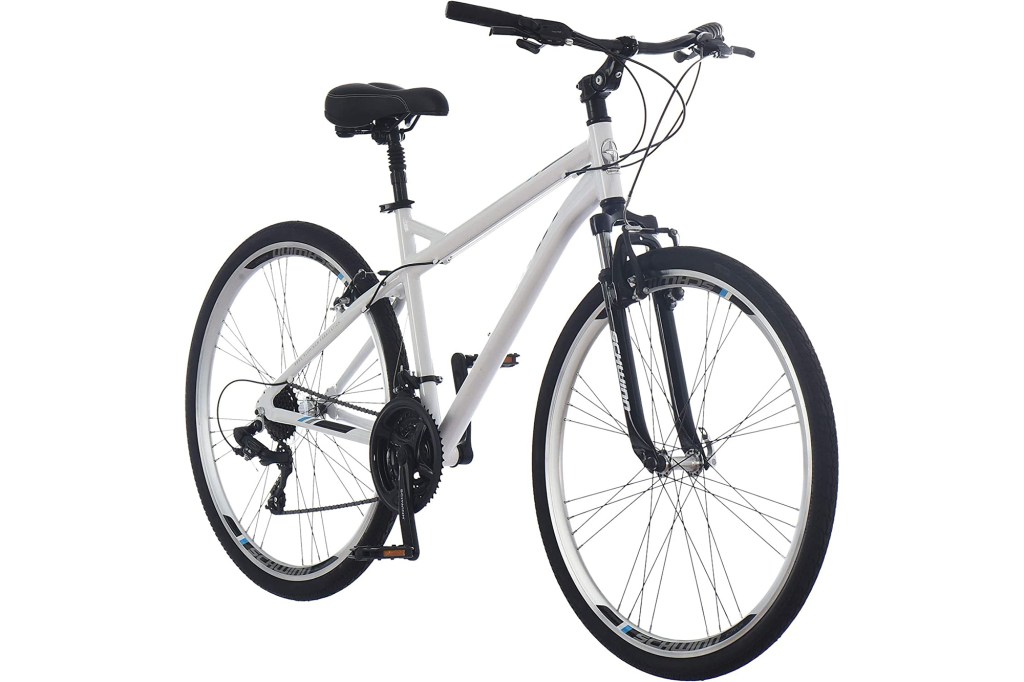
Based on data from the Union of Concerned Scientists, vehicles account for nearly one-fifth of all U.S emissions, emitting around 24 pounds of carbon dioxide and other global-warming gases for every gallon of gas.
If you’re ready for a major lifestyle change, consider swapping your car for a bike on some shorter commutes. This hybrid bike from Amazon is built for street riding, and features 21-speed shifters to give riders a fast and fun alternative to driving.
2. Magneto Mini Cruiser Bamboo Skateboard, $100
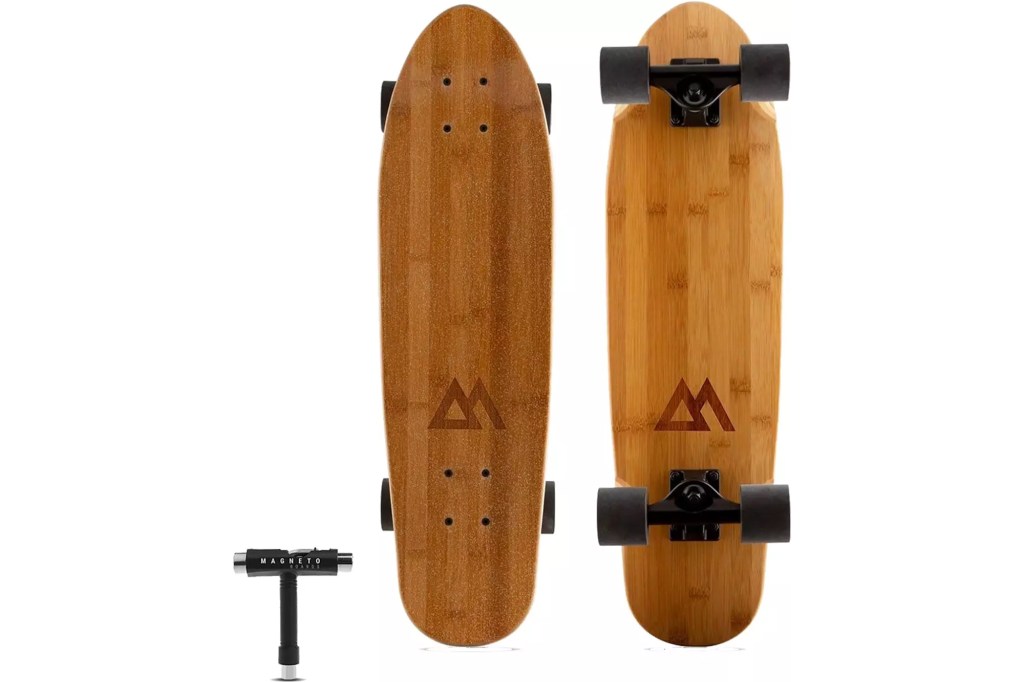
Skateboards aren’t just meant for the skate park. These hipster-mobiles can be taken to the streets for a more eco-friendly commute.
When choosing a skateboard, it’s important to consider the materials used. Most skateboard decks are made of glue and wood, which raises concerns for those considering deforestation levels. However, this skateboard is made from bamboo, which is a more eco-friendly option that is still water resistant and durable.
3. Liku Professional Rollerblades, $99 to $108
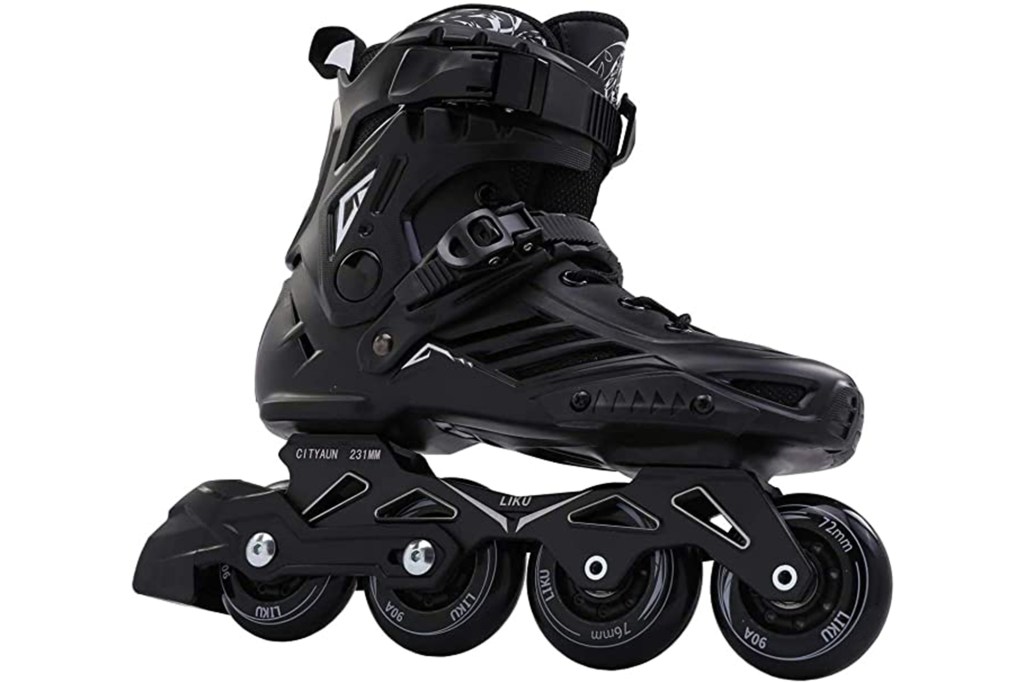
If you’re looking for a good way to get some cardio in while reducing your environmental impact, it might be time to invest in a pair of rollerblades.
These unisex entry level skates come in various sizes and provide unbeatable support and comfort. The secure closure system helps lock the heels and ankles in for a great fit, and the reviews rave about the breathability of the boot.
4. Charity Miles

Put your miles towards a good cause with a completely free app that tracks your movement and gives back to charities.
Whether you are looking to jumpstart a healthier lifestyle or feel passionately about giving back, this app is a great, passive way to give back to yourself and others. Choose from charities like the Malala Fund, Save the Children, and Habitat for Humanity.
Household Items
1. Grove Essential Cleaner Concentrates Set, $10
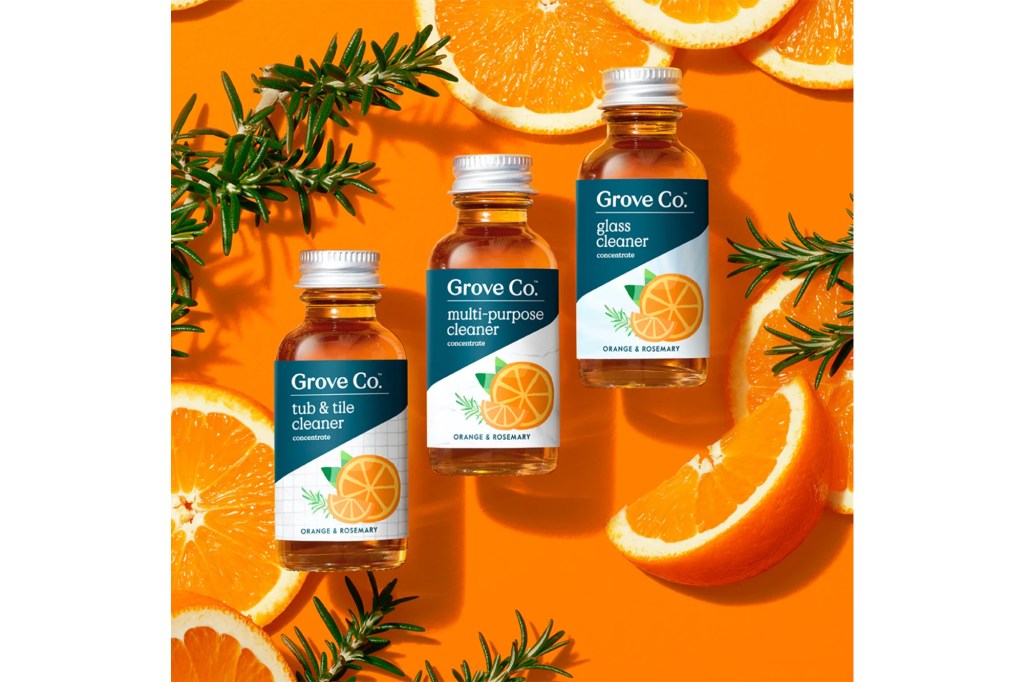
According to the American Lung Association, many cleaning products have chemicals that are harmful to our personal health and the environment. Notably, those which contain antibacterial gels and soaps can produce dangerous pollutants.
Grove is a certified B-corp that produces cleaning products with recyclable packaged and natural fragrances. All their products are also made in the U.S. This cleaning set includes a multi-purpose cleaner, tub and tile cleaner, as well as glass cleaner.
2. Redmon Compost Bin, $48
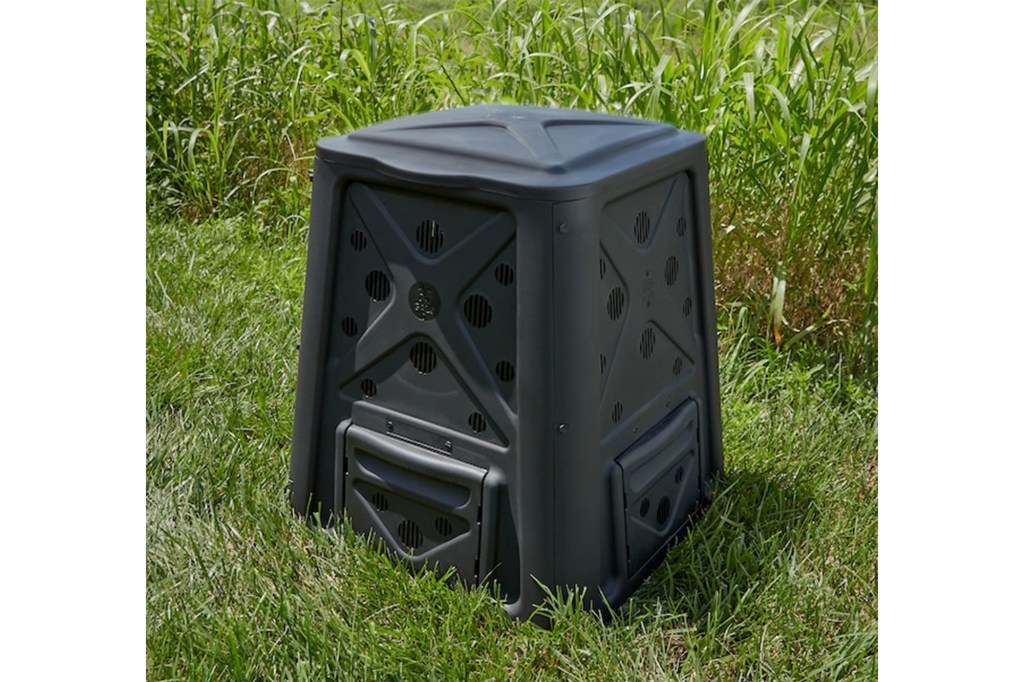
Don’t let your leftover fruits and vegetables go to waste. Composting reduces the need for chemicals fertilized by enriching the soil and breaking down organic matter.
The Redmon stationary compost bin breaks down your kitchen food scraps and yard waste into a rich, earthly-friendly fertilizer. Your garden will bloom and the environment will thank you. Breather holes help speed up the composting process and 4-access doors help you retrieve composted material.
3. Stainless Steel Straws With Silicone Tips, $8
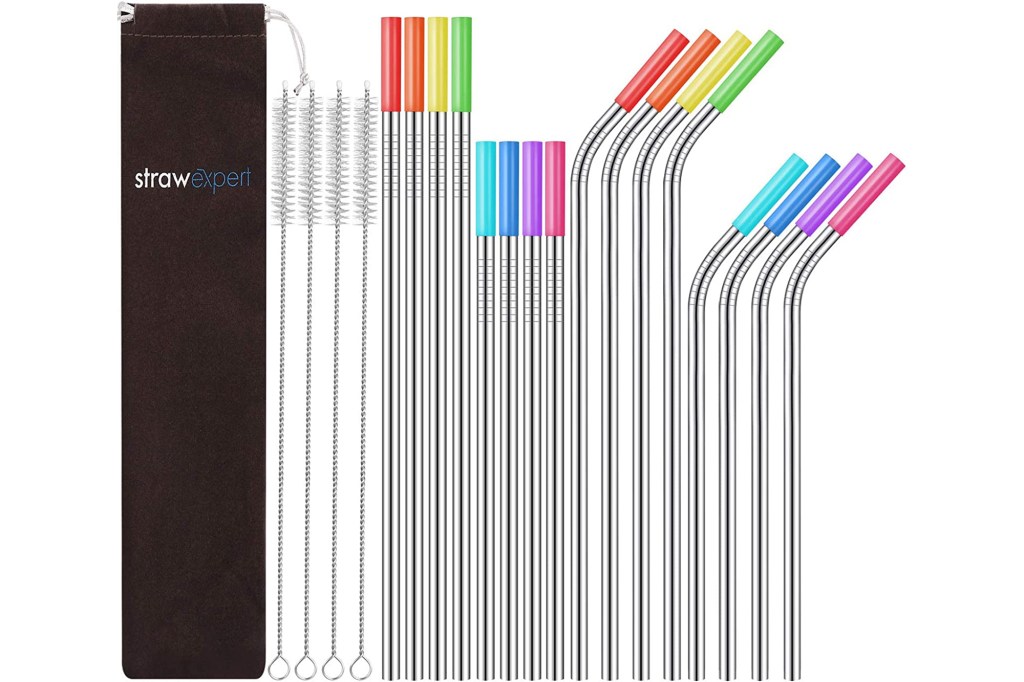
According to the World Wildlife Fund, the average American uses 1.6 straws a day. In the U.S alone, that’s enough to circle the equator two and a half times.
In addition to polluting the oceans, plastic straws can be flimsy and meltable. These Amazon straws are made from premium, silver-colored stainless steel, providing a polished surface for the best sipping experience. Plus, one stainless steel straw can last for years and replace hundreds of plastic straws for you.
4. The Little Market
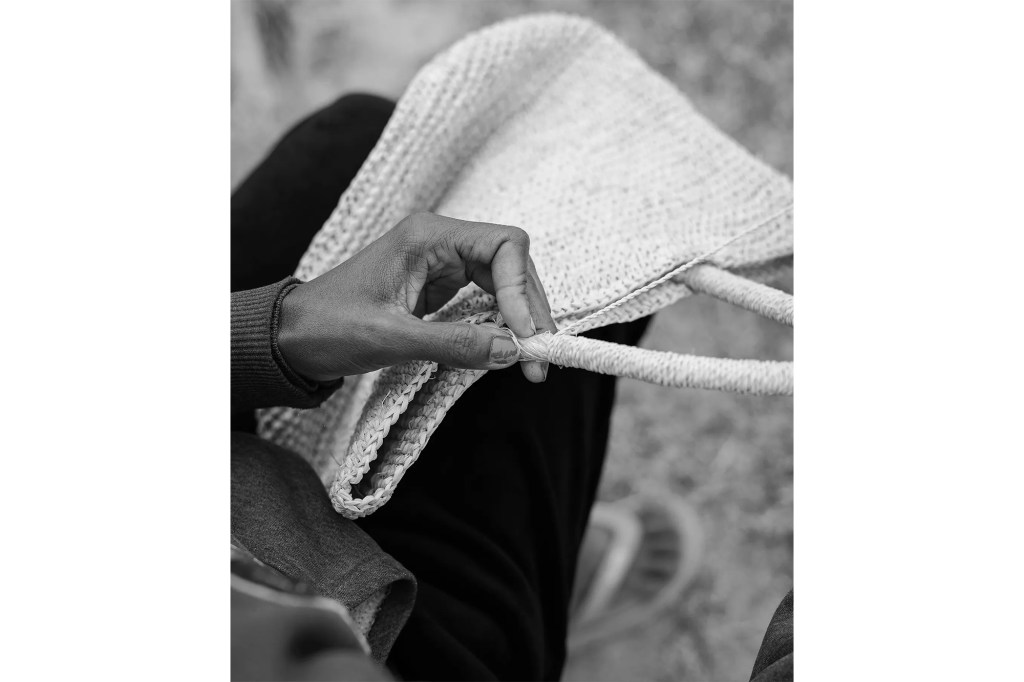
Especially after the last few years, it’s become more important to support small business and artisans struggling in wake of inflation and the COVID-19 pandemic.
At the Little Market, you can shop by initiative to find different artisans that support causes like the environment, refugees, and indigenous populations. The market features a selection of items from household decor, to gifts, and bathroom and kitchen items.
For more content, check out the New York Post Shopping section.








